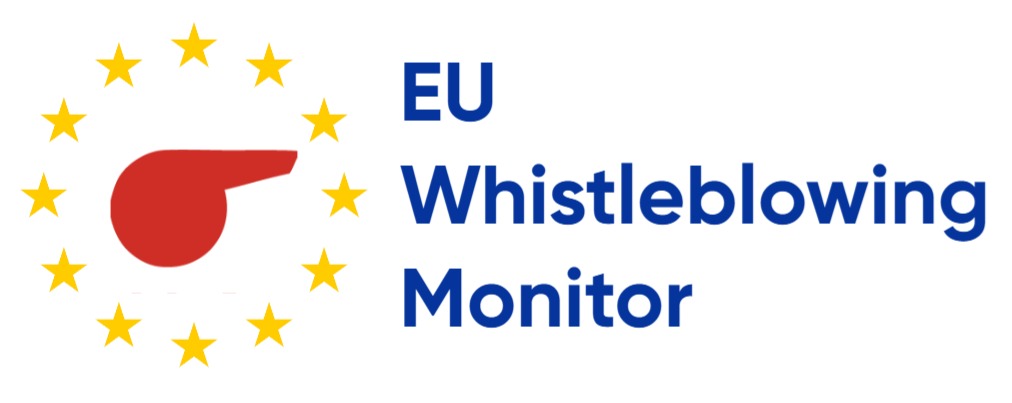Understanding Czech Whistleblower Protection Law: A Simplified Guide
Last updated: 31/03/25
What is whistleblowing?
Whistleblowing can be simply defined as reporting potential illegal conduct in the workplace. A person who makes a report and is protected against retaliatory measures is called a whistleblower (in Czech “oznamovatel”). In the Czech Republic, the legal framework is established in the Whistleblower Protection Act (Act No. 171/ 2023 Coll.) and the accompanying law (Act No. 172/2023 Coll.) that came into force in August 2023. The Act is a transposition of the EU Directive on Whistleblowing.
Key features of the whistleblower protection law
According to the law, a whistleblower can be any natural person who encounters unlawful conduct in the workplace and decides to report it (internally or externally). It does not necessarily have to be an employee but can also be a self-employed person or an intern. The Whistleblower Protection Act does not protect anonymous whistleblowers.
The law defines broad material scope but does not protect reporting of any unlawful conduct. The whistleblowers are protected only if they report criminal offences, administrative offenses (only if the law impose a fine with an upper limit of at least 100 000 CZK) and any violations of European law in areas defined by the directive.
Where and How to Report
A whistleblower can freely choose between internal and external reporting channel.
Reporting Internally
An internal reporting channel is mandatory for every employer with more than 50 employees, municipal authorities of cities with over 10 000 inhabitants and some other specialized employers and public authorities which are specified by the act. The employer is required to determine a person who is responsible for receiving internal reports and carry out an investigation. The employer has to publish the contact information about the responsible person.
Reporting Externally
In the Czech Republic, there is no special institution designated solely for the protection of whistleblowers. External reports are accepted by a unit at the Ministry of Justice. Detailed information about the external reporting system is available on the website of Ministry of Justice.
The procedure that follows the receipt of a report is essentially similar in both cases – the responsible person/a state employee of the Ministry of Justice must receive and assess the report. A whistleblower must be informed about the acceptance of the report within 7 days and about the result of the investigation within 30 days (in more complicated cases, the deadline can be extended). If the report is deemed justified, the responsible person will propose corrective measures to the obliged entity.
If a whistleblower makes the content of their report public, they are entitled to protection only if they had firstly used the internal or external reporting channel and no appropriate measure was taken or if they believe that the conduct could lead to immediate threat to life, health, etc.
Measures to Protect Whistleblowers
Information about the whistleblower’s identity may only be disclosed with their written consent. An exception applies when the information must be provided to the relevant public authorities in accordance with other legal regulations. The information about whistleblower and the report must be retained for a period of five years. Only responsible person/employee of the Ministry of Justice has an access to the records.
The Act defines the examples of retaliation – termination of employment, reduction of salary, change of working hours…The list of prohibited actions is demonstrative and the retaliation may be any action/ omission related to the report that can cause harm. If the whistleblower suffered non-material damage, the act establishes the right to appropriate compensation. In the case of a lawsuit, the burden of proof is reversed and it is up to employer to prove that their conduct/ omission was not a retaliatory measure.
Ministry of Justice monitors compliance with the obligations. The act specifies a whole range of offenses (and subsequent fines) that may arise from the breach of law. Fines typically range up to 100 000 CZK and can be imposed, for example, for disclosing the identity of a whistleblower or refusing to accept a report. In addition to employer and responsible person, a fine may also be imposed on whistleblowers if they knowingly make a false report.
Protection Against Lawsuits
Filing a report according to the Whistleblower Protection Act cannot constitute a breach of duty of confidentiality, unless it concerns some of the areas enumerated in the law, such as protection of classified information and national security interests, or confidentiality of legal professionals.
The does not provide any specific measures for protection against gagging measures, or vexatious lawsuits. However, provisions of some general laws may apply, such as rules for the criminal or civil procedure, regulation of the labour code on possible non-disclosure agreeements, etc.
Cautions for whistleblowers
Despite the protection, a whistleblower should bear in mind the financial costs of litigation that can take months. The key weakness of the practise is that whistleblowers do not have sufficient tools for their defence before the lawsuit whose outcome is uncertain. Moreover, the costs of legal representation often discourage a whistleblower from lawsuit.
It is also important to consider the social consequences of the report, because in the Czech society, the whistleblowers are sometimes perceived negatively. It is also important to keep all relevant documents and evidence.
Where to Seek Information, Support & Advice
- Ministry of Justice – competent authority that operates external reporting channel
- Whistleblowing Center
- Transparency International Czech Republic ALAC – free legal advice for whistleblowers
- Mobbing Free Institut – psychological help for employees that suffer workplace bullying
Further Reading & Helpful resources
- EU Whistleblower Monitor
- Annual Report on Activities of the Ministry of Justice in the Field of Whistleblower Protection in 2023
Download Summary PDF: awb-colete-online-23102024-FAN-Courier-4297400008277-A4.pdf
